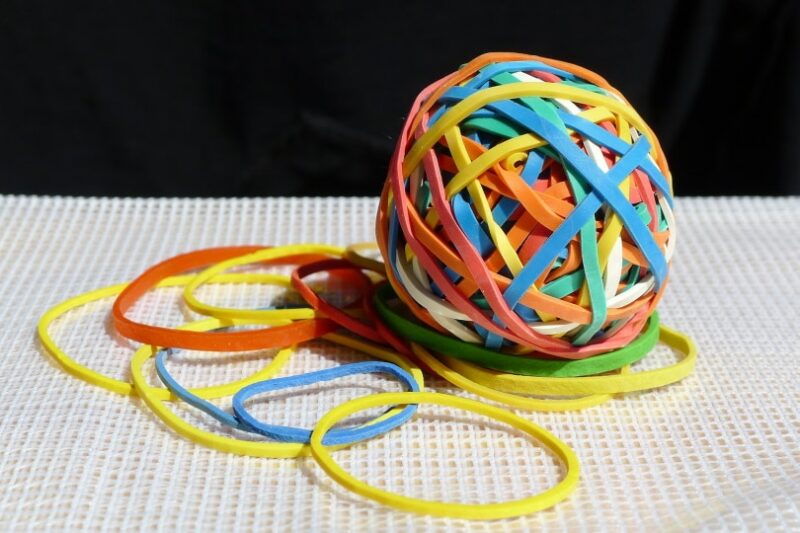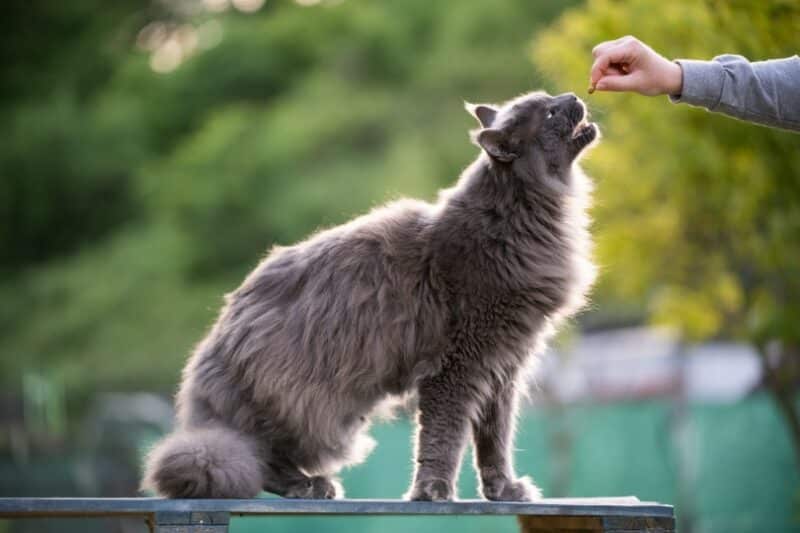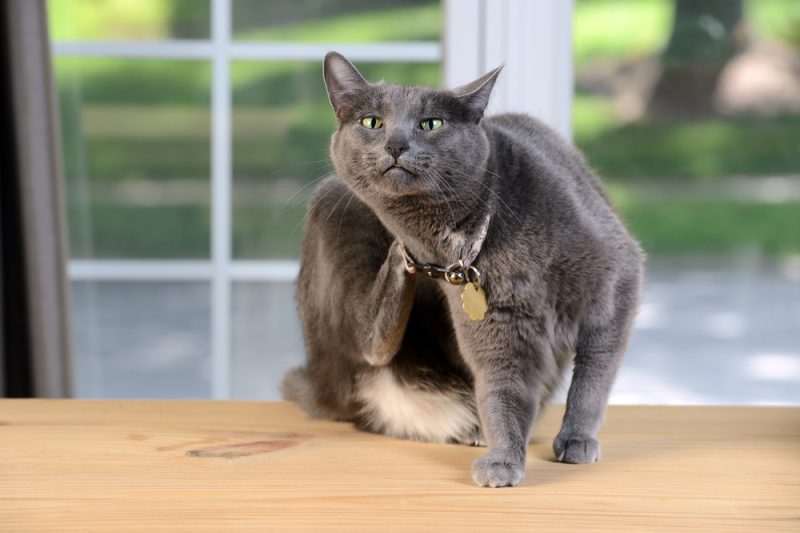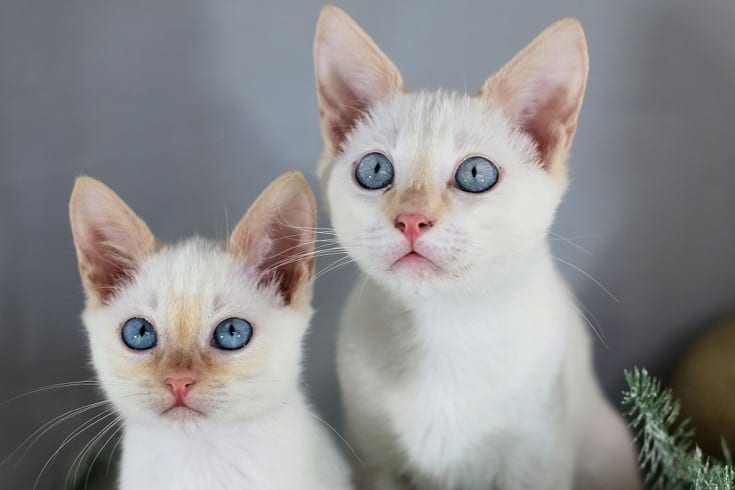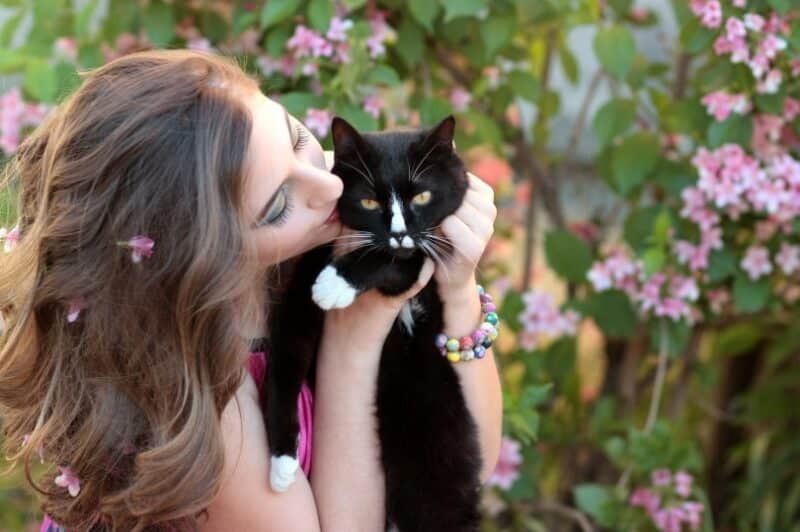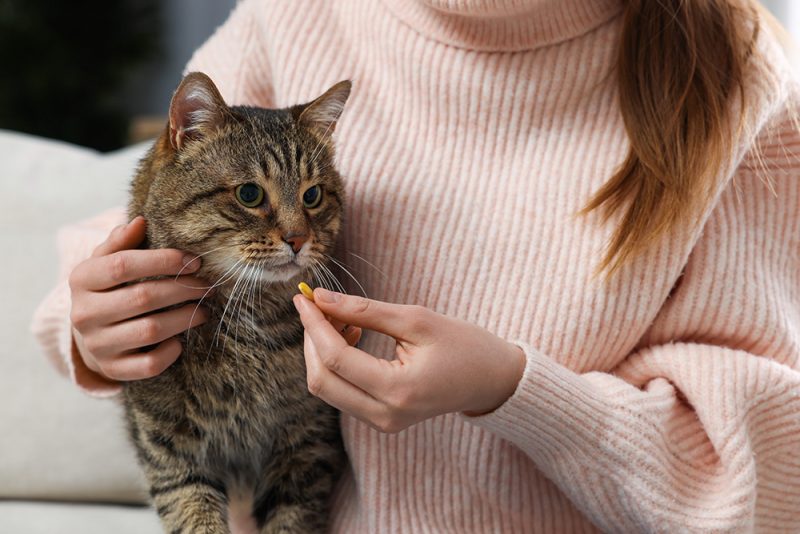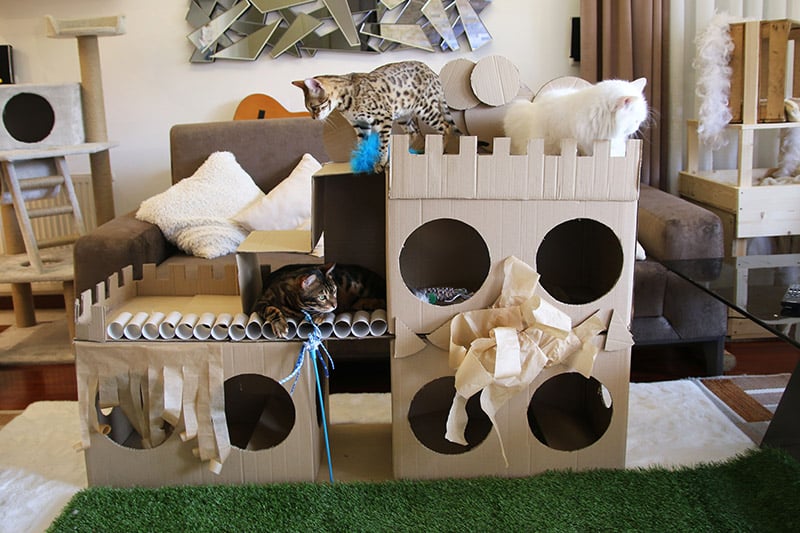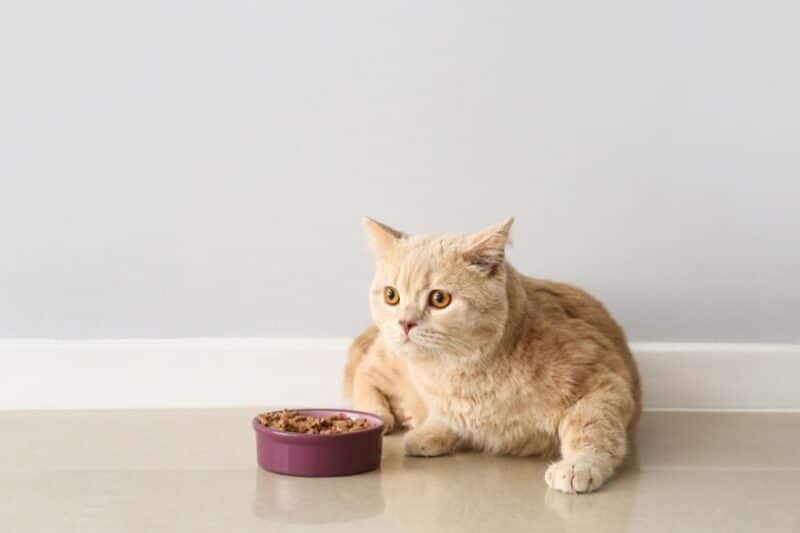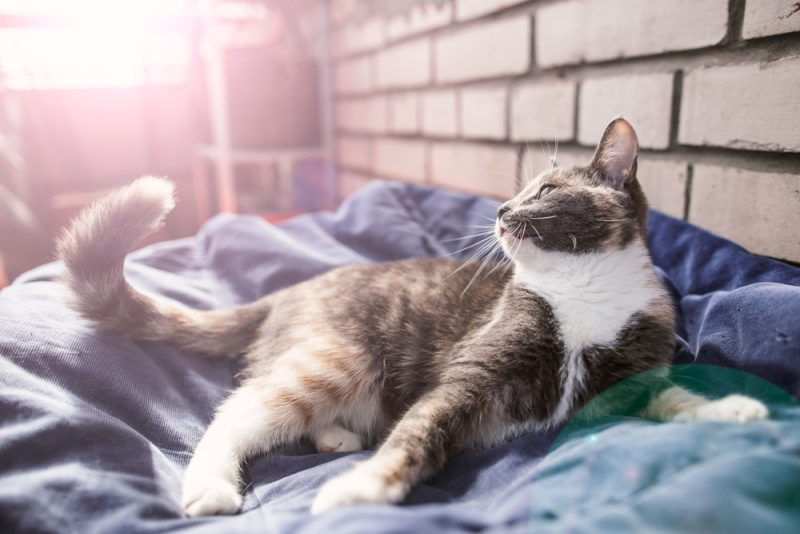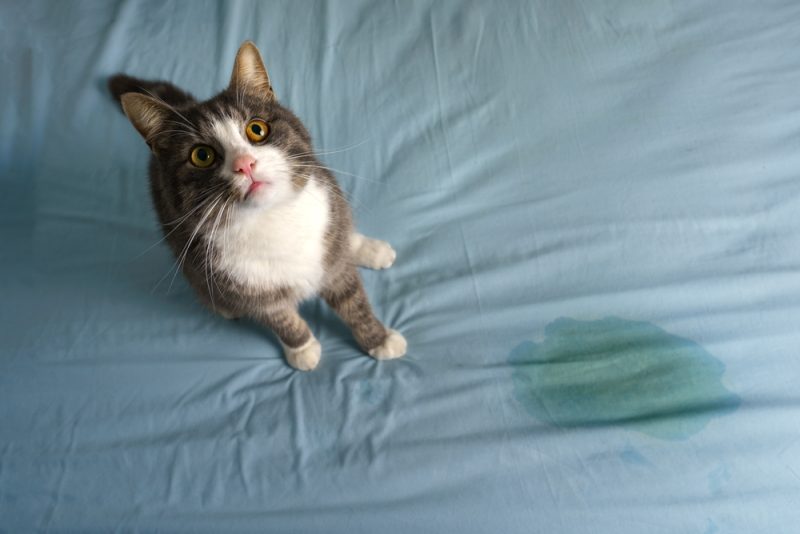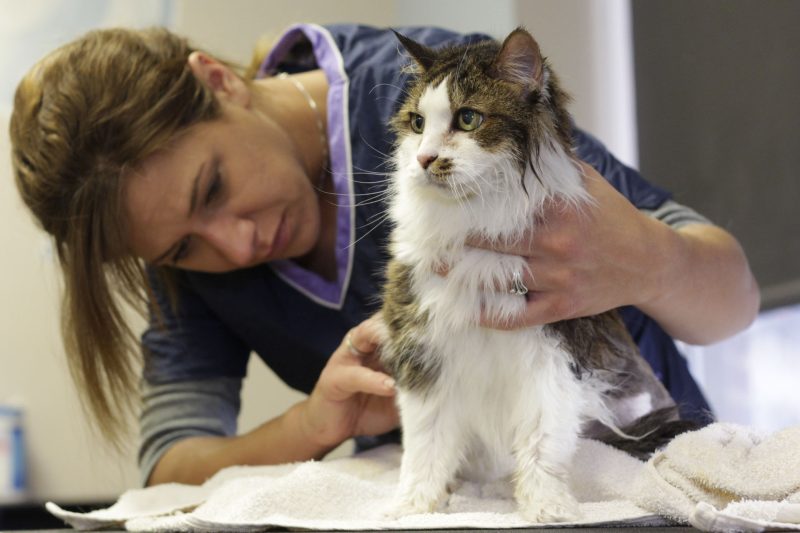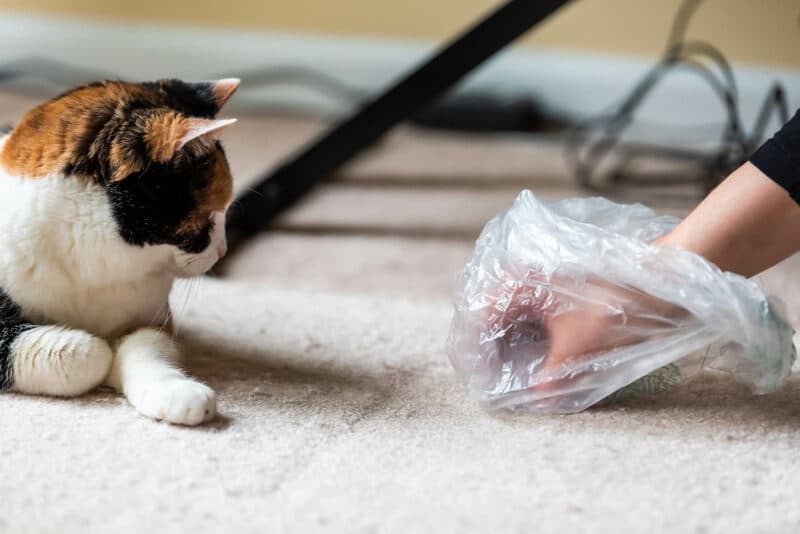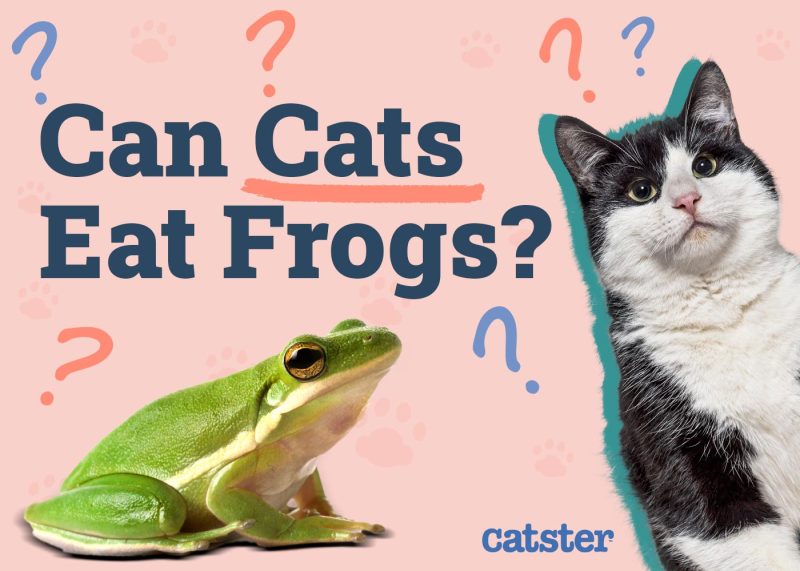Cats are peculiar beings, and any cat owner knows that cats will entertain themselves with something simple, such as a milk ring, bottle cap, empty box, piece of paper, or even rubber bands. Even if you buy your cat plenty of cat toys, your cat will still find interest in bizarre things around the home. But why do cats like rubber bands? What is it about them that intrigues cats and spikes interest in playing with them?
If you’re a cat owner and have wondered about the answer to this question, you’ve come to the right spot. In this article, we’ll investigate why cats like rubber bands and the interesting reasons behind the behavior.

The 4 Vet-Approved Reasons Cats Like Rubber Bands
1. Hunting Instinct
Cats are natural hunters and have a natural prey drive, and the elasticity and springy tendon-like texture of rubber bands inherently attract cats. Since rubber bands have a tendon-like feel, this makes cats feel as if they are pulling the tendon from their prey, and best of all, rubber bands don’t fight back.
As strange as this sounds, rubber bands make cats exercise their natural hunting skills and stimulate their prey drive, which can make them feel accomplished and satisfied. Cats need mental stimulation, and rubber bands can provide this for your cat.
2. They Love the Smell
Rubber bands have a chemical smell that attracts cats. Did you know cats have 45 to 80 million (and possibly up to 200 million)1 scent receptors? That’s impressive, especially compared to humans, who have roughly 5 million.
Rubber bands have a chemical smell, which may mimic hormones that are tempting to cats. Natural rubber bands contain odorants2 that include limonene, which is found in citrus fruits that have a lemony scent.
Rubber bands also contain a compound called triethylamine3 that produces a fishy smell, which is extremely enticing to cats. Humans may not smell these scents in rubber bands, but remember that cats have millions more scent receptors in their noses compared to humans.
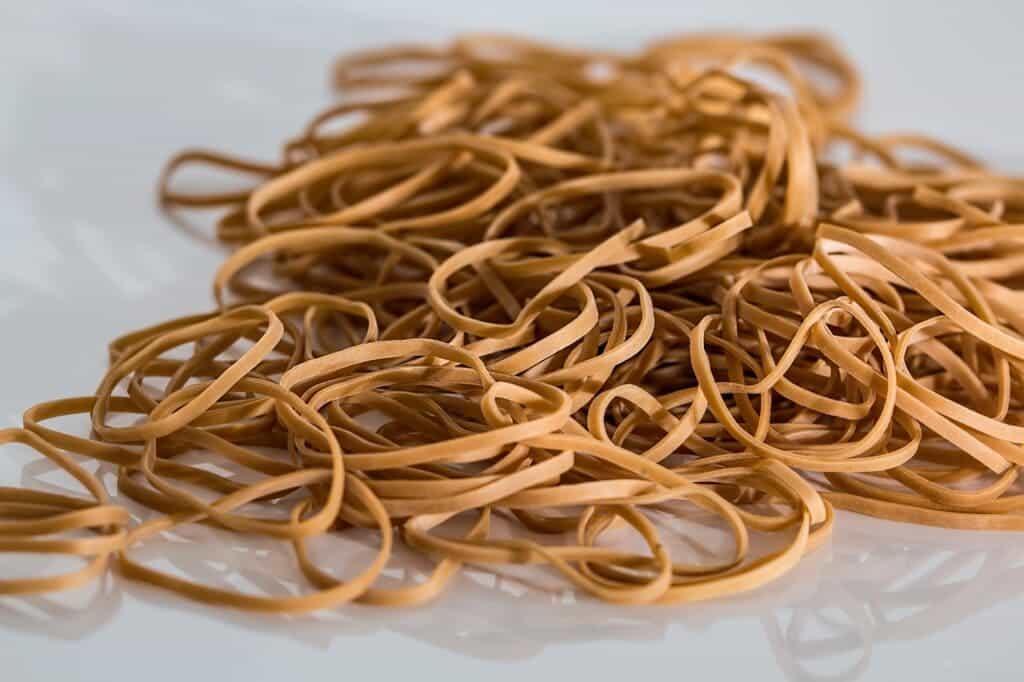
3. Your Cat May Have Pica
In case you’re not familiar with the term, Pica means the desire to eat non-edible material, and rubber bands certainly fall into this category. Other objects that fall into this category are leather, plastic, wood, paper, and cardboard, which could explain a cat’s attraction to empty boxes. Why some cats may have Pica is not fully understood, but it could be from being weaned too early, compulsive disorders, or genetics.
4. Stress Related
Another possible reason why your cat loves playing with rubber bands is because of stress. A stressed cat may look for ways to self-soothe, and licking, chewing, and sucking on rubber bands may be a stress reliever.
Cats dealing with boredom, anxiety, or even an illness may display odd behaviors such as chattering, knocking things over, ignoring you, pooping outside the litter box, and bouncing off the walls. It’s important to take your cat to a veterinarian if you suspect your cat may be stressed and exhibiting odd behaviors.
If you need to speak with a vet but can't get to one, head over to PangoVet. It's an online service where you can talk to a vet online and get the advice you need for your pet — all at an affordable price!

How Rubber Bands Can Be Fatal
Unfortunately, rubber bands are not a safe object for your cat to play with and can even be fatal. Rubber bands can cause an obstruction in your cat’s digestive tract that will result in surgery to remove it, and it could be life-threatening if not caught in time. There’s a chance your cat may pass the rubber band, but the tendon-like material can easily get hung up in the digestive tract.
Playing is an important part of keeping your cat mentally and physically engaged, and a great toy will make it much easier. We like Hepper's Catnip Stick Toys because they're sturdy enough to handle intense play and completely filled with organic catnip. You'll love the fun range of pastel colors and your cat will enjoy the prey-like shape!
At Catster, we’ve admired Hepper for many years and decided to take a controlling ownership interest so that we could benefit from the outstanding designs of this cool cat company!
What Do I Do if My Cat Swallowed a Rubber Band?
First things first: try not to panic! Rubber bands are not toxic to your cat, and just because your cat swallowed a rubber band does not mean it will cause problems. But it could, and you must not ignore it.
The timeframe of when your cat may pass the rubber band varies, but objects not broken down during the digestion process can stay in your cat’s digestive tract for a long time. It’s vital to know the signs that your cat is having problems after swallowing a rubber band, which include:
- Changes in their stool
- Vomiting
- Not eating
- No interest in play
- Excessive sleeping
- Changes in drinking habits
- Having a sore tummy
Contact a vet ASAP if you notice any of these signs. The sooner your cat is examined, the better the outcome. If your cat swallows a rubber band, other complications could arise, such as choking, a tangled intestine, getting caught around the tongue, and damaging delicate tissue in the food pipe or inside the mouth.


Conclusion
For the best outcome and to avoid a potentially dangerous situation, it is best to keep rubber bands inaccessible and out of reach from your cat. Cats can jump on just about any object, so it’s wise to avoid leaving rubber bands anywhere your cat can access.
Keep rubber bands in a drawer or some other safe area, and ensure your cat has plenty of safe toys to play with. Always contact your vet if you suspect your cat has swallowed a rubber band or some other unsafe object.
Featured Image Credit: evondue, Pixabay
